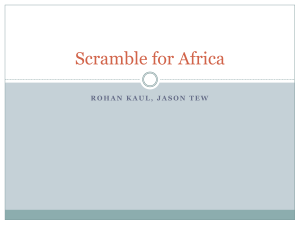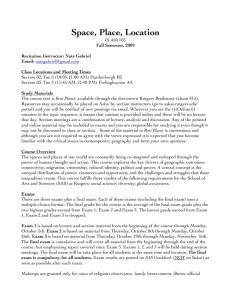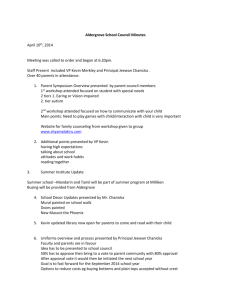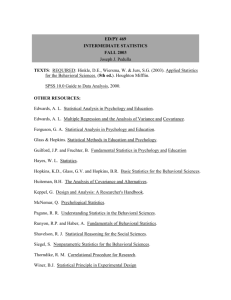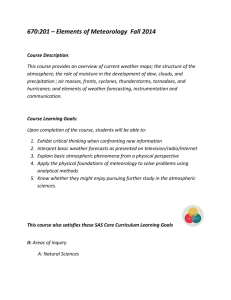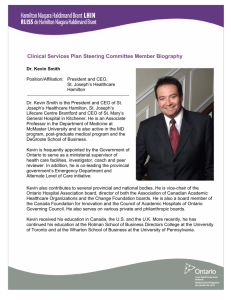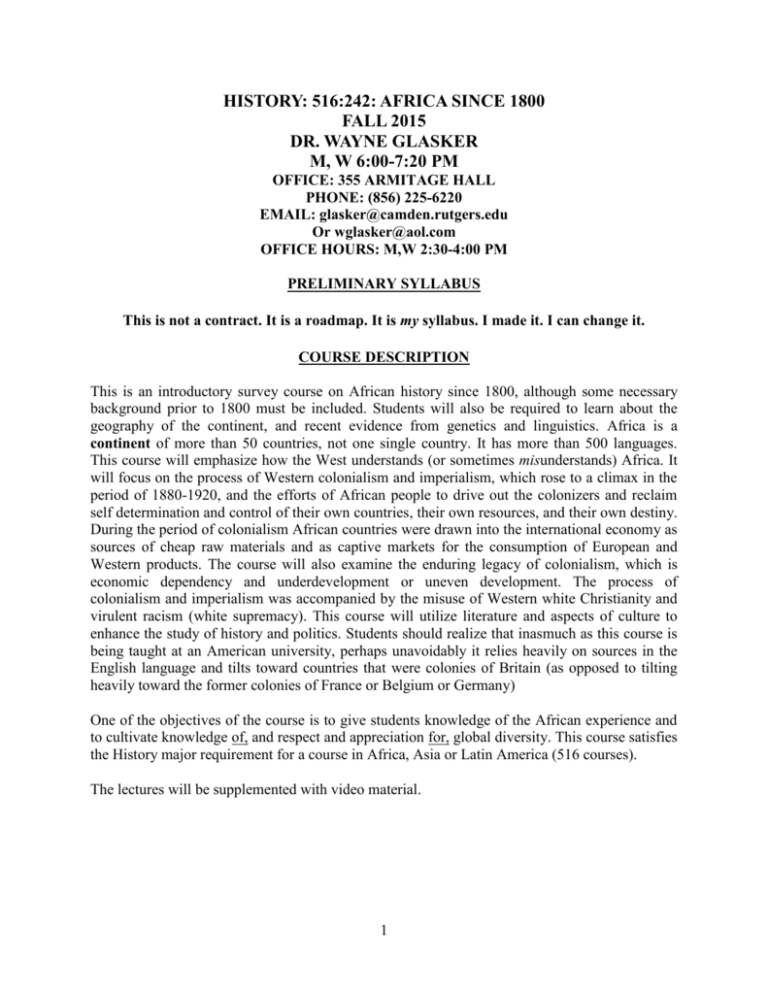
HISTORY: 516:242: AFRICA SINCE 1800
FALL 2015
DR. WAYNE GLASKER
M, W 6:00-7:20 PM
OFFICE: 355 ARMITAGE HALL
PHONE: (856) 225-6220
EMAIL: glasker@camden.rutgers.edu
Or wglasker@aol.com
OFFICE HOURS: M,W 2:30-4:00 PM
PRELIMINARY SYLLABUS
This is not a contract. It is a roadmap. It is my syllabus. I made it. I can change it.
COURSE DESCRIPTION
This is an introductory survey course on African history since 1800, although some necessary
background prior to 1800 must be included. Students will also be required to learn about the
geography of the continent, and recent evidence from genetics and linguistics. Africa is a
continent of more than 50 countries, not one single country. It has more than 500 languages.
This course will emphasize how the West understands (or sometimes misunderstands) Africa. It
will focus on the process of Western colonialism and imperialism, which rose to a climax in the
period of 1880-1920, and the efforts of African people to drive out the colonizers and reclaim
self determination and control of their own countries, their own resources, and their own destiny.
During the period of colonialism African countries were drawn into the international economy as
sources of cheap raw materials and as captive markets for the consumption of European and
Western products. The course will also examine the enduring legacy of colonialism, which is
economic dependency and underdevelopment or uneven development. The process of
colonialism and imperialism was accompanied by the misuse of Western white Christianity and
virulent racism (white supremacy). This course will utilize literature and aspects of culture to
enhance the study of history and politics. Students should realize that inasmuch as this course is
being taught at an American university, perhaps unavoidably it relies heavily on sources in the
English language and tilts toward countries that were colonies of Britain (as opposed to tilting
heavily toward the former colonies of France or Belgium or Germany)
One of the objectives of the course is to give students knowledge of the African experience and
to cultivate knowledge of, and respect and appreciation for, global diversity. This course satisfies
the History major requirement for a course in Africa, Asia or Latin America (516 courses).
The lectures will be supplemented with video material.
1
REQUIRED READINGS
Kevin Shillington, History of Africa, 3rd edition
Chinua Achebe, Things Fall Apart
Ousmane Sembene, Xala
There will be articles in sakai and possibly on electronic reserve as well. Ordinarily, to access
sakai, type sakai.rutgers.edu and then your username and password. We will use sakai
extensively.
ALSO RECOMMENDED
Vincent Khapoya, The African Experience (recommended)
Robert July, A History of the African People
J. Forbes Munro, Africa and the International Economy, 1800-1960
Roland Oliver and Anthony Atmore, Africa Since 1800
Alhaji Sir Abubakar Tafawa Balewa, Shaihu Umar
NORMS OF BEHAVIOR
It cannot be assumed that all students understand the culture of a four year university. In our
class we may have freshmen, and transfer students from community college, as well as juniors or
seniors. Therefore it is necessary to spell out, in writing, what the behavioral norms and
expectations are. For the record, attendance will be taken in this class. No more than five
absences are expected. Once you have accumulated more than five unexcused absences
your grade for the course will be penalized.
Late exams will not be given unless there is a doctor's note documenting illness, accident or
hospitalization; or an auto repair receipt documenting that "my car broke down"; or an obituary
documenting that "my grandmother died again." Some students, without fail, get sick on the day
of the exam, every exam, every semester; or suffer the loss of a family member (at every exam)
or sustain some injury (at every exam). If you are enrolled in this class, we expect you to be
here. If you are not going to attend, you should not be enrolled.*
If, for example, you are in a car accident and are hospitalized and are going to be absent
for weeks at a time, contact the Student Advising Office (856-225-6043). That office will
then send a notice to all of your professors, making them aware of your situation. The same
procedure should be followed if any type of illness (such as mono or strep throat) or an
emergency occurs that will cause you to be absent for an extended period of time. In this
class, if you are absent for weeks at a time without explanation, you will be referred to the
Student Advising Office, and you will not be allowed to take exams* until the Student Advising
Office provides a satisfactory explanation and documentation. Nor will I accept written work.
CONSPICUOUS, REPEATED CHATTING IS INTOLERABLE
2
You should not be "chatting" while I am lecturing. During the lecture you are supposed to be
taking notes and paying attention. If you need to chat during the lecture, please take your
conversation outside. Conspicuous, repeated chatting is rude. Your classmates cannot hear the
lecture if you are chatting and disturbing them. Chatting marks you as an uncouth, self-absorbed,
lower class person who has not been adequately socialized. Such behavior might be tolerated in
high school. But all of you should know better by now. If not, be assured that it will not be
tolerated here. People who "chat" excessively will be asked to withdraw from the course and
referred to the Advising Office.* Chatting will be regarded as negative participation for the
purposes of class participation (which is ten percent of the course grade). If your chatting
problem cannot be resolved to my satisfaction, you will not receive a grade for the course.
TOYS
During class please turn down the volume of your cell phone. Urgent calls should be taken
outside in the hallway. You should not be playing with your video games and smart phones
or Facebook or watching television during the lecture. If laptops and tablets are abused,
they will be banned from the classroom. Being an excellent student requires FOCUS. It
requires paying attention and tuning out distractions. If you cannot do that then you are
not functioning at the level of an ADULT (as opposed to an teenager) and should not be at
Rutgers.*
DISCUSSION MUST BE CIVIL
The view that I take in this course, in general, is that there is not one view that is the one and
only "correct" view. We are not Stalinists. Rather, there are multiple points of view
competing in the marketplace of ideas; no one has a monopoly on "truth;" and "truth" is
in the eye of the beholder. We can discuss our differing views, but our discussion should be
polite and civil. That means that students do not engage in name-calling with one another,
personal attacks, shouting, "talking over" people, interrupting, jeering, and other forms of
combative speech. We can disagree without being disagreeable. Sometimes we just have to agree
to disagree.
EXAMS AND PAPERS
There will be frequent exams, and the Final Exam. It is difficult to say in advance exactly how
many exams. All dates are tentative and subject to change. The exams (including the Final
Exam) will count as 50% of the course grade. Class attendance will count as 5% of the course
grade, and class participation will count for at least 10% (this will include a homework
assignment or two). There will be three papers (book reports in which you respond to directed
questions on Things Fall Apart and Xala), which are to be eight to ten pages in length. Things
Fall Apart will be divided into two papers. The Multiple Choice section of the Final Exam
will be cumulative.
CIVIC ENGAGEMENT/COMMUNITY SERVICE
3
I am also asking that we participate in civic engagement (community service). Two or three
times this semester we will donate food to the Food Bank of South Jersey, which in turn
distributes food to local pantries.
COMPONENTS OF THE GRADE, SUMMARIZED
Exams
Papers
Attendance
Civic Engagement
Participation
50%
30%
5%
5%
10%
If you are here, you will know exactly when the exams will be given. If you are absent it is
your responsibility to get notes from a classmate. Every student should have a partner in
the class (a teammate) so that you can get notes.
You should check your email before class for announcements in Sakai. EVENTUALLY
most of the reserve readings can be accessed through sakai; click on Library e-Reserves in
the left hand column.
PLAGIARISM AND ACADEMIC INTEGRITY
The papers are not collaborative exercises. Each person should do his or her own
independent, individual work. The papers will be submitted with BOTH a paper hard copy
and you will upload it to sakai, where it will be filtered through TURNITIN, which detects
Internet copy-and-paste plagiarism. If you copy and paste someone else’s work and do not
cite the source this is plagiarism. It might be as small as a sentence or two, but if you do not
use quotation marks and cite the source it is still plagiarism. “I didn’t know” and “I
forgot” are not acceptable excuses.
If two or more people turn in papers that are entirely or substantially identical, this
suggests cheating or collusion. The person who shared the file or notes with the person who
turned in someone else’s work as his or her own is equally guilty of violating the Code of
Academic Integrity. The consequences can be severe.*
Obviously students should not cheat on exams or attempt to use notes stored on cellphones
or other devices during an exam. The Code of Academic Integrity can be found at
http://academicintegrity.rutgers.edu/integrity.shtml#I
AMERICANS WITH DISABILITIES STATEMENT
4
The Americans with Disabilities Act (ADA) is a federal anti-discrimination statute that provides
civil rights protections for persons with disabilities. If you believe you have a disability requiring
an accommodation, please contact the Office of Disability Services. The Office of Disability
Services (ODS) provides students with confidential advising and accommodation services in
order to allow students with documented physical, mental, and learning disabilities to
successfully complete their course of study at Rutgers University – Camden. The ODS provides
for the confidential documentation and verification of student accommodations, and
communicates with faculty regarding disabilities and accommodations. The ODS provides
accommodation services, which can include readers, interpreters, alternate text, special
equipment, and note takers. The ODS acts as a signatory for special waivers. The ODS also
works with students, faculty, staff and administrators to enforce the American with Disabilities
Act of 1990.
Coordinator of Disability Services, Rutgers-Camden (all schools excluding law)
Timothy S. Pure
(856) 225-6442
Fax: (856)225-6443
Rutgers-Camden Learning Center
Armitage Hall, Room 240
THE GRADING SCALE
In general, an average of
00-59 = F
60-69 = D
70-74 = C
75-79 = C+
80-84 = B
85-89 = B+
90-92 = A93-100 = A
Failing
Poor
Satisfactory
More than Satisfactory
Good
Very Good
Low A, Excellent
Outstanding
Most faculty persons would agree that a 95 is a solid A. A grade of 93 might be an A to many
professors (including this one), but not necessarily all professors. The "zone" between 90 and 92
is the most discretionary, and debated. Some faculty members would consider a 92 to be a B+. In
my view the range of 90-92 should probably be considered an A minus (A-), except that at
Rutgers we do not have a grade of A minus [which means a low A as opposed to a middle A or a
high A], and therefore faculty members have to decide whether to treat the A- "zone" as either an
A or a B+.
IN THE INTEREST OF FULL DISCLOSURE
5
This course is taught from a liberal perspective. Students who do not wish to be exposed to a
liberal perspective or are “uncomfortable” with hearing a liberal perspective may wish to take
some other course. Also, some students feel that Dr. Glasker is very “opinionated.” If you do not
wish to be exposed to a professor who is “opinionated” then take some other course. As the old
adage says, “If you can’t stand the heat then get out of the kitchen.”
ALL RIGHTS RESERVED
All of the rights, privileges and immunities of the tenured faculty are reserved. I AM the syllabus.
SCHEDULE OF READINGS
All dates are tentative and subject to change.
W Sept. 2
Introduction
In sakai, under Resources, look at Nubians, Nok sculpture 1, Nok sculpture 2,
Nok sculpture 3, head of an Oni, and Benin bronze warrior, and Mansa Musa,
(rex melli), Also, “size of Africa” and map of Africa
M Sept 7
No class, Labor Day.
Read Kevin Shillington, History of Africa, Into and Chap. 1 (prehistory)
(we will not use Chaps. 2-9)
T Sept. 8
Kevin Shillington, History of Africa, Chap. 10, in class, DVD
In sakai, see “Greenberg, Languages of Africa”
W Sept 9
Kevin Shillington, History of Africa, Chaps. 11 and 12 (north Africa, slave trade)
In sakai, under Resources, look at Map of Middle East, Map of Arab World
Winthrop Jordan, The White Man’s Burden, Chaps. 1-3 (on reserve at library)
In sakai, under resources, see: Michelangelo; Color and the TYR Gene;
Melanin, Skin Color Adaptation; Melanin and Skin Color; Skin Color and
Vitamin D.
M Sept. 14
On electronic reserve at library Winthrop Jordan, The White Man’s Burden,
Chaps. 4-6 (on reserve at library)
“Slavery: How It Built the New World”
“The High Price of Sugar”
David Northrup, The Atlantic Slave Trade, essays by Eric Williams,
David Brion Davis, and David Eltis
In sakai, under Resources, see articles Banjo I, Banjo II, “Origins,” [Origins of
the major human infectious diseases]“Why did they die?” ;Rinderpest; Roseola;
Three or so articles on Bubonic Plague; black death/middle ages; Black Death,
England; Black Death, Genoese Ship; CDC, Caffa, Siege of; chicken pox -
6
encyclopedia; chickenpox-wikipedia; monkeypox; allele, medical dictionary;
allele, medical encyclopedia.
Lorenzo Greene, “Mutiny on the Slave Ships”(on electronic reserve at library,
accessible through Library eReserves)
W Sept. 16
Tentatively, first exam (with map)
M Sept. 21
Kevin Shillington, History of Africa, Chap. 13 (west Africa)
W Sept. 23
Kevin Shillington, History of Africa, skim Chaps. 14 and 15 (central Africa,
the Masai, southern Africa)
M Sept. 28
Kevin Shillington, History of Africa, Chap. 16 (Islamic jihads)
W Sept. 30
Kevin Shillington, History of Africa, Chap. 17
M Oct. 5
Kevin Shillington, History of Africa, Chap. 18 (British at the cape, Boers to 1870)
W Oct. 7
Kevin Shillington, History of Africa, Chap. 19 (French in Algeria, Egypt and
Sudan to the Mahdi, Ethiopia)
In sakai, under Resources, see “Intervention in Egypt”
M Oct 12
continued
W Oct. 14
Expect exam soon
Kevin Shillington, History of Africa, Chap 20, (Missionaries; Ethiopia to 1896)
M Oct. 19
Kevin Shillington, History of Africa, Chap. 21 (the European scramble for Africa)
W Oct. 21
Kevin Shillington, History of Africa, Chap. 22 (southern Africa to 1902, including
Namibia)
M Oct. 26
Kevin Shillington, History of Africa, Chap. 23 (to WWI)
W Oct. 28
Kevin Shillington, History of Africa, Chap. 24 (economics of the interwar years,
Early African nationalism)
M Nov. 2
Kevin Shillington, History of Africa, Chaps. 25, 26 (WWII, winning
independence I)
W Nov. 4
Tentatively, a quiz
7
Chinua Achebe, Things Fall Apart, begin
M Nov. 9
Achebe, Things Fall Apart, continue
W Nov 11
paper on first half of Things Fall Apart
M Nov. 16
read second half of Things Fall Apart
W Nov. 18
to be announced
M Nov. 23
paper due on second half of Things Fall Apart
W Nov. 25
No class, day before Thanksgiving
Read Kevin Shillington, History of Africa, Chaps. 27-28
M Nov. 30
Kevin Shillington, History of Africa, Chaps. 29-32
On electronic reserve at library, Frantz Fanon, The Wretched of the Earth,
excerpt, (it will be there by the time that we need it)
Ousman Sembene, Xala, begin
W Dec 2
Ousman Sembene, Xala, continue
M Dec. 7
Ousman Sembene, Xala, finish
W Dec. 9
Our last class, paper due on Xala
8


